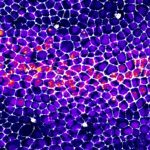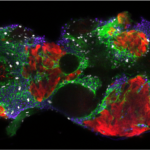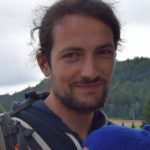About
“Why some worms regenerate while others cannot – molecular and evolutionary mechanisms in planarian regeneration”
Abstract: Some animals have the ability to regenerate body parts lost to injury, while already closely related species are often unable to regenerate. Why regeneration should remain an exception rather then the rule represents a fascinating question in the face of “survival of the fittest”. My lab studies the ability of planarian flatworms to regenerate complete animals from random tissue fragments as model system for regeneration. In addition, we are pioneering the laboratory culture of regeneration-deficient planarians and have established a large live collection with currently > 60 species. Together, these approaches allow us to analyze the molecular mechanisms that orchestrate regeneration in the well regenerating model species, the specific changes in the underlying regulatory networks that cause regeneration defects in other species and finally the evolutionary mechanisms that might explain their natural selection. My talk will illustrate our model taxon approach by example of the Wnt signaling network, which we identified both as core mechanism of normal regeneration and as a hot spot in the repeated evolution of planarian regeneration defects.


